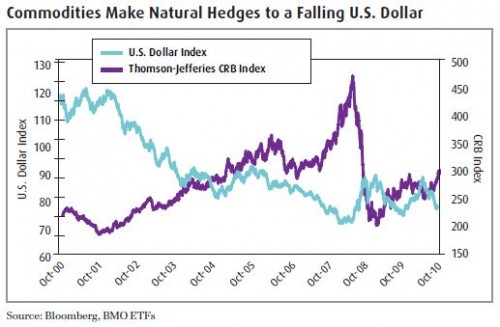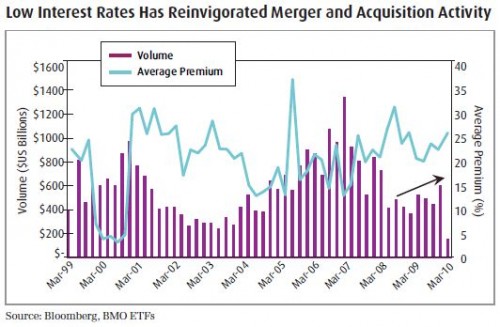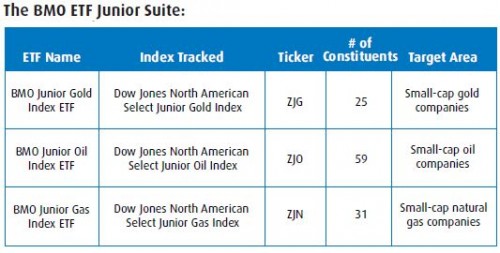We continue to believe that many of the issues in the U.S. economy are structural, thus at this point additional capital injected into the system is unlikely to solve the problems that persist south of the border. However, the additional money will likely continue to push up the prices of real assets such as Canadian REITs and commodities. In fact, the current state of the economy could be very beneficial for commodities. In addition to quantitative easing, the Fed has committed to keeping interest rates low to further stimulate economic activity. This increases the likelihood that the U.S. dollar will remain relatively low, especially if the policies are successful in bringing back the “risk-trade” which we saw resurface in September. As commodities are perceived as not only a hedge against a declining U.S. dollar, but also currencies in general, they could continue to benefit. A common goal of nations during this “global currency war” is gaining a competitive advantage through lower currency values. Some countries have gone as far as intervening to artificially suppress currency values. Moreover, as we mentioned in our July Monthly Strategy Report titled “Oil Stocks For the Long Run,” we believe the eventual renminbi valuation will increase the purchasing power of the Chinese, allowing China to better capitalize its push towards industrialization, a heavily commodity dependent process.
Opportunities:
We believe commodities in general are in a secular bull-market. An area that we particularly like is small-cap commodity companies since historically low interest rates have made accessing capital for these companies inexpensive. This in turn has created an environment that has been ripe for merger and acquisition activity. Recent examples include the US$7 billion acquisition of Red Back Mining Inc. by Kinross Gold Corp. and Total SA’s takeover of UTS Energy Corp. As of the end the third quarter in 2010, mergers and acquisition of volume were up 44.7% year-over-year, according to Bloomberg. Furthermore, the average takeout premium has been 22.3%, just above the ten-year average of 21.9%. While we believe there are far stronger fundamental reasons to buy small-cap commodity companies and would never recommend a sector based on the potential for acquisitions alone, we believe this could potentially lead to an inherent built-in premium in small-caps over the long-run.
As mentioned, there are more fundamental and even technical reasons why we are bullish on small-cap commodity companies in addition to a favourable takeout environment, which we outline below. BMO ETFs has three exchange-traded funds (ETFs) that allow investors to efficiently target three specific small-cap commodity areas including junior gold, junior oil and junior natural gas. Please note however, that small-cap companies in general tend to have more inherent operating leverage than their larger-cap peers. As a result, they may exhibit higher volatility and should be used in smaller allocations rather than core positions in a portfolio.
Of the three junior ETFs, we believe the BMO Junior Gold Index ETF (ZJG) is likely to produce the best returns over the long-run given the precious metal’s growing market acceptance as an alternative currency and its ability to rise in both a “risk-on” and “risk-off” environment. Back on September 3, we advised investors to trim the profit portions of their positions as certain measures were indicating it was overbought, allowing investors to collect a 35.5% return since we first recommended the ETF in February and a 14.9% return when we re-recommended it in August. As of late, we recommend investors keep this ETF on their radar as the MACD1 measure is indicating a potential buying opportunity. In our opinion, the Fed’s recent decision to initiate a further round of quantitative easing should lead the greenback lower and create a favourable environment for gold over the long-run.














